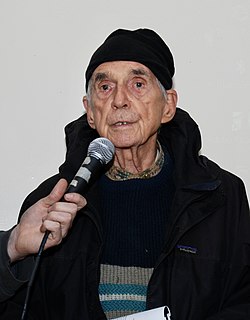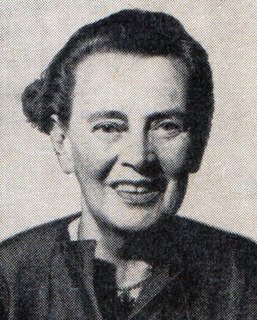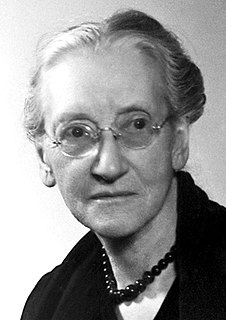A Quote by J. Robert Oppenheimer
I think that all things which evoke discipline: study, and our duties to men and to the commonwealth, war, and personal hardship, and even the need for subsistence, ought to be greeted by us with profound gratitude, for only through them can we attain to the least detachment; and only so can we know peace.
Related Quotes
Journalism only tells us what men are doing; it is fiction that tells us what they are thinking, and still more what they are feeling. If a new scientific theory finds the soul of a man in his dreams, at least it ought not to leave out his day-dreams. And all fiction is only a diary of day-dreams instead of days. And this profound preoccupation of men's minds with certain things always eventually has an effect even on the external expression of the age.
"War," says Machiavelli, "ought to be the only study of a prince;" and by a prince he means every sort of state, however constituted. "He ought," says this great political doctor, "to consider peace only as a breathing-time, which gives him leisure to contrive, and furnishes ability to execute military plans." A meditation on the conduct of political societies made old Hobbes imagine that war was the state of nature.
Of course, let us have peace, we cry, "but at the same time let us have normalcy, let us lose nothing, let our lives stand intact, let us know neither prison nor ill repute nor disruption of ties ... " There is no peace because there are no peacemakers. There are no makers of peace because the making of peace is at least as costly as the making of war - at least as exigent, at least as disruptive, at least as liable to bring disgrace and prison, and death in its wake.
War is harmful, not only to the conquered but to the conqueror. Society has arisen out of the works of peace; the essence of society is peacemaking. Peace and not war is the father of all things. Only economic action has created the wealth around us; labor, not the profession of arms, brings happiness. Peace builds, war destroys.
We scientists have way too much a tendency to simplify problems. I guess it actually comes to us naturally. Take the simplest unit, separate out all the confusing, external factors. Study it. Make sure you understand it. And in psychology that means the person studying the individual. But if you want to study our social nature, if you want to study processes that will lead to war and peace, you don't learn all that much by looking at the single individual. A lot of the important things are emergent facts about us, things that you can only see when you get a lot of us interacting.
We have known the bitterness of defeat and the exultation of triumph, and from both we have learned there can be no turning back. We must go forward to preserve in peace what we won in war. A new era is upon us. Even the lesson of victory itself brings with it profound concern, both for our future security and the survival of civilization. The destructiveness of the war potential, through progressive advances in scientific discovery, has in fact now reached a point which revises the traditional concepts of war.
The obstacles to peace are in the minds and hearts of men.
In the study of matter we can be honest, impartial, true. That is why we succeed in dealing with it. But about the things we care for — which are ourselves, our desires and lusts, our patriotisms and hates — we find a harder test of thinking straight and truly. Yet there is the greater need. Only by intellectual rectitude and in that field shall we be saved. There is no refuge but in truth, in human intelligence, in the unconquerable mind of man.
Now that I've seen what war is, what civil war is, I know that everybody, if one day it should end, ought to ask himself: "And what shall we make of the fallen? Why are they dead?" I wouldn't know what to say. Not now, at any rate. Nor does it seem to me that the others know. Perhaps only dead know, and only for them is the war really over.
To understand a profound thought is to have, at the moment one understands it, a profound thought oneself; and this demands some effort, a genuine descent to the heart of oneself . . . Only desire and love give us the strength to make this effort. The only books that we truly absorb are those we read with real appetite, after having worked hard to get them, so great had been our need of them.
It is only through meditation that we can get lasting peace, divine peace. If we meditate soulfully in the morning and receive peace for only one minute, that one minute of peace will permeate our whole day. And when we have a meditation of the highest order, then we really get abiding peace, light and delight. We need meditation because we want to grow in light and fulfill ourselves in light. If this is our aspiration, if this is our thirst, then meditation is the only way.
... But all the feelings that evoke in us the joy or the misfortune of a real person are only produced in us through the intermediary of an image of that joy or that misfortune; the ingeniousness of the first novelist was in understanding that, in the apparatus of our emotions, since the image is the only essential element, the simplification which consists of purely and simply suppressing the factual characters is a definitive improvement.



































